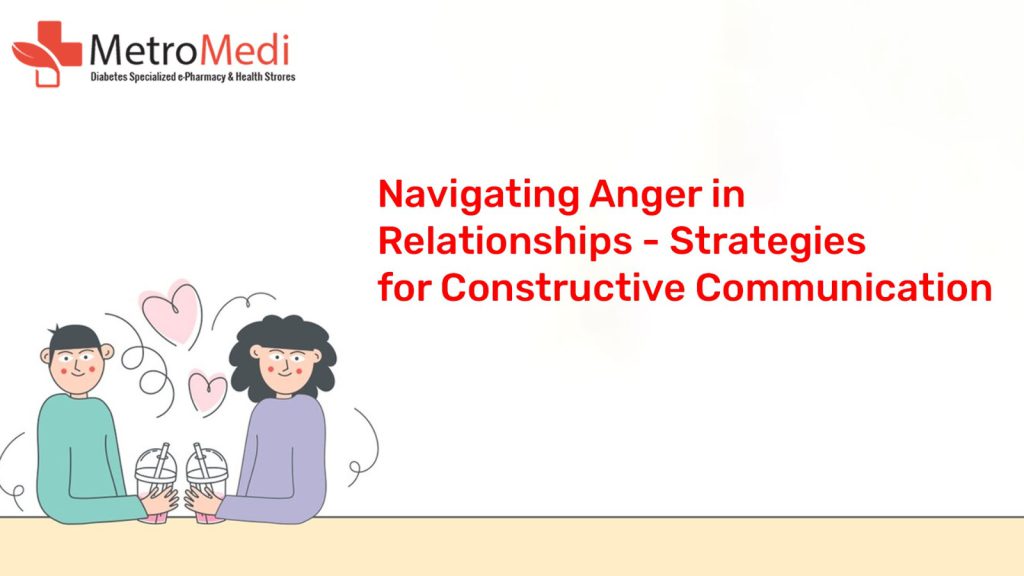
Anger is a natural part of any relationship, but how you handle it can determine the health and strength of your connection. Effective relationship counselling can provide valuable insights and strategies for managing anger constructively. In this blog, we will explore how relationship counselling and other resources like online counselling services can help you navigate anger and build a stronger relationship.
Understanding the Roots of Anger
Before you can address anger constructively, it’s crucial to understand its roots. Anger often arises from unmet needs, misunderstandings, or feelings of being undervalued. Reflecting on these underlying causes can reveal the real issues in your relationship. Relationship counselling can assist in uncovering these emotional triggers and provide strategies to address them.
1. Pause and Breathe
When anger flares up, taking a moment to pause and breathe deeply can prevent impulsive reactions. This technique helps calm your nervous system and gives you time to think clearly. Utilizing online anxiety counselling resources can also offer techniques for managing these intense emotions effectively.
2. Identify Your Feelings
Anger is often a secondary emotion, masking deeper feelings such as hurt or frustration. Identifying the primary emotion behind your anger is essential. For example, if you’re upset because your partner forgot an important date, you might actually feel hurt or unappreciated. Online mental counselling can provide tools for recognizing and addressing these underlying emotions.
3. Communicate Effectively
Effective communication is vital in managing anger within relationships. Using “I” statements to express your feelings without placing blame can lead to more constructive discussions. For instance, say, “I feel ignored when you don’t respond to what I’m saying,” rather than accusing your partner. Relationship counselling can guide you in developing these essential communication skills.
4. Listen Actively
Active listening is a cornerstone of effective relationship counselling. Give your partner your full attention, acknowledge their perspective, and validate their feelings. Avoid interrupting or planning your response while they are speaking. This approach fosters a more open and empathetic dialogue.
5. Seek Solutions Together
After expressing your feelings and listening to your partner’s perspective, work together to find a resolution. Approach the discussion with a problem-solving mindset rather than a competitive one. Relationship counselling often emphasizes the importance of collaboration in resolving conflicts and strengthening bonds.
6. Practice Empathy
Empathy is crucial for understanding your partner’s perspective and diffusing anger. Relationship counselling can help you develop this skill, enabling you to see things from your partner’s point of view and address their feelings more effectively.
7. Take Responsibility
Acknowledging your part in the conflict and taking responsibility for your actions is vital. An apology and a commitment to change can help rebuild trust. Relationship counselling often focuses on helping individuals and couples take responsibility and make positive changes in their behaviour.
8. Set Boundaries
If emotions are too heated, it’s okay to take a break from the discussion. Agree on a time to revisit the issue when both of you are calmer. Relationship counselling can help you establish and respect these boundaries, ensuring that conversations remain respectful and productive.
9. Seek Professional Help
If anger consistently disrupts your relationship, seeking professional help can be beneficial. Online counselling services, including online anxiety counselling and online mental counselling, provide accessible support and strategies for managing anger and improving communication.
10. Foster Positive Interactions
Strengthening your relationship through positive interactions can help buffer against the impact of conflicts. Spend quality time together, express appreciation, and celebrate each other’s achievements. Relationship counselling often includes techniques for enhancing these positive experiences.
Conclusion
Anger in relationships is natural, but managing it effectively is key to maintaining a healthy connection. Utilizing relationship counselling, online counselling services, and online mental counselling can provide valuable tools and support. By understanding the roots of anger, communicating effectively, and seeking professional help when needed, you can turn conflicts into opportunities for growth and deeper connection. Remember, every relationship faces challenges, but with patience and constructive communication, you can strengthen your bond and navigate anger more effectively.
